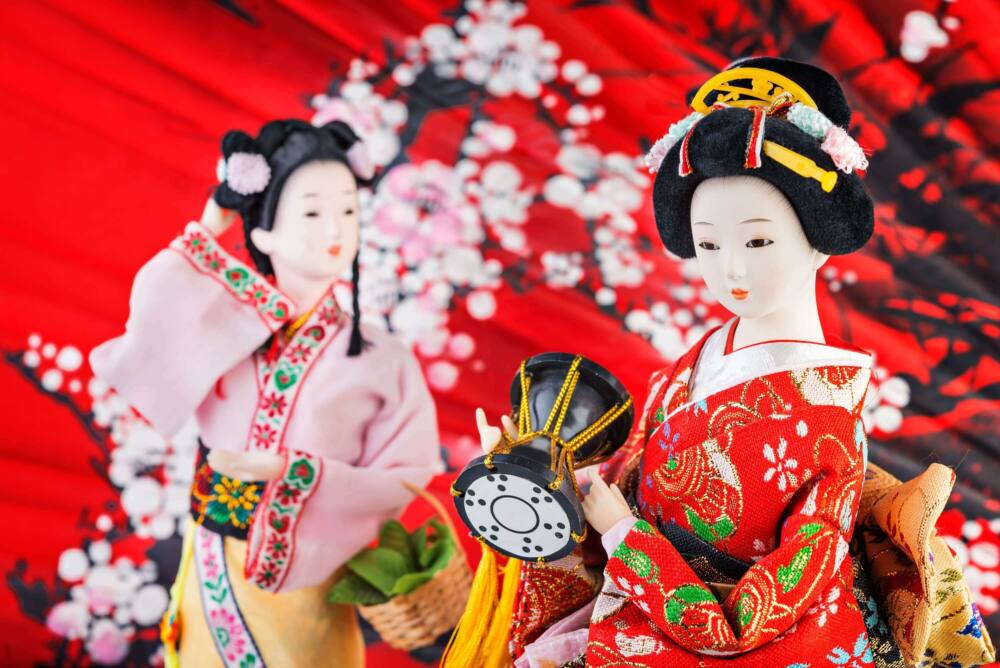Looking for some cool Japanese words that don’t exist in English? Well check out these Japanese words that are extremely popular and fun to use below.
The English language can’t express everything! Dive into this collection of fascinating Japanese words that capture unique emotions, natural wonders, and even life philosophies. Prepare to expand your vocabulary and appreciate the beauty of Japanese expression.
Page Contents
What is the coolest Japanese word that doesn’t exist in English?
The coolest Japanese word that doesn’t exist in English is Kawaii. Kawaii is the Japanese term to describe something cute. It was first used in reference to the big eyes in Japanese cartoons. While the word kawaii is being used across the globe to call something cute, the Japanese have a more cultural focus and use it as a reflection on what is pure and harmless.
Cool Japanese Words That Don’t Exist In English
Yūgen (幽玄)
Yugen is used to describe the emotional response that comes with recognition of the profoundness of the universe. It is the mysterious and intense sense of the beauty of the universe and the melancholy of human suffering.

For example, when you ponder over how many cells have come together to make up our body or how vast the universe is. It’s one of the very cool Japanese words that don’t exist in English.
- Related: Basic Japanese Words To Use To Have Easy Conversations
- Related: Easy Japanese Phrases To Use When Eating At A Restaurant In Japan
- Related: Easy Japanese For Food Ordering
Shinrin Yoku (森林 よく)
When translated in a literal sense, Shinrin yoku means “forest bath”. The Japanese use it to describe the experience of visiting a forest to better your health and relax.
Wabi Sabi (侘寂)

Wabi Sabi has gained much popularity in the Western world and is now being used in the English language as well! Wabi Sabi is definitely amongst the cool Japanese words that don’t exist in English
The Japanese use wabi sabi when finding beauty in imperfections or simplicity. Some also use it to describe something that is simple but brings them calmness and a good feeling.
The author David Watts Barton very aptly wrote while describing wabi sabi “both life and art are beautiful not because they are perfect and eternal, but because they are imperfect and fleeting.”
Mono No Aware (者 の 哀れ)
This phrase is quite similar to wabi sabi. It is used to describe the appreciation of beauty in things when they are present and the melancholy that follows when they are gone. It’s a reference to the phrase that nothing lasts forever.
Natsukashii (懐かしい)
Quite similar to but different from the English word ‘nostalgia’, Natsukashii is used often in the Japanese language. The Japanese use it to describe the pleasant feelings of memories returning and creating a warm feeling within.
Shoganai (書がない)
Shoganai is used in Japanese to say that it cannot be helped. It is not a negative or discouraging phrase. Rather it means that something is out of the person’s control. It’s one of the cool Japanese words that don’t exist in English.
It is a way of helping people believe that if something doesn’t go the way they initially planned, it isn’t their fault since it was not in their control.
Kintsuki (金継ぎ) or Kintsukuroi ((金繕い)
Kintrsuki or Kintsukuroi is a Japanese artform where the artist mends broken pieces of pottery by filling in the cracks with silver or gold.
This originates from the Japanese belief that even in brokenness, something beautiful can exist and the broken piece is more beautiful after being broken and mended.
Otsukaresama (お疲れ様)
The Japanese people are known for being hardworking. So it is no surprise that there is a word like Otsukaresama. When translated literally, it is something like saying “you’re tired”.
The Japanese use this to show their appreciation and gratitude for someone’s hard work. It’s one of the cool Japanese words that don’t exist in English.
Itadakimasu (頂きます)
Food and the act of eating holds much importance in Japanese culture. It is almost sacred. Itadakimasu is used just before eating and means “I will eat this”.

The Japanese use this as a sign of respect and gratitude for the person who has made the food and served it, the food, nature, and anything else related to the food and eating it.
Komorebi (木漏れ日)
This is the Japanese word for the sunlight seen streaming through the little spaces in between leaves on trees. Of course the Japanese came up with a word that captures this beautiful moment.
Kuidaore (食い倒れ)
‘Kui’ refers to eating and ‘daoreru’ means to be ruined or go bankrupt. The term kuidaore is used to refer to extravagant desire for good food and drink.
It is used to describe lavishing on food and is often used to describe the Dotonbori district of Osaka where there are a number of prominent restaurants.
Tsundoku (積ん読)
This one is for people like me. Tsundoku is used to refer to people who hoard books but leave them unread. It comes from the words tsumu which means to pile up and doku which means to read.
Nekojita (猫舌)
It literally translates to ‘cat tongue’. Nekojita is often used to refer to people who are sensitive to hot foods and drinks.
The term probably originated from the story of the cat who burned his tongue while trying to sip on hot milk. Nekojita is one of the cool Japanese words that don’t exist in English.
Karoshi (過労死)
As morbid as it may sound, karoshi means death from overworking. As mentioned earlier, the Japanese people are a very hardworking bunch of people.
Karoshi is especially used when referring to people who work in the corporate sector and have ungodly working hours, sometimes over a 100 hours of overtime in a month before they die.
Takane no hana (高値 の 花)
This is a fun one! This phrase is used to describe a woman who is not easily attainable. The phrase originates from hana which means flower and takane meaning high peak.
It is a metaphor with reference to the flowers that grow on high peaks and how they are not easily accessible. It’s one of the cool Japanese words that don’t exist in English.
Mottainai (もったいない)
Mottainai can be translated to ‘what a waste’ or ‘how wasteful’. It is used when something that is worthy or useful is not being used to its full potential or is being thrown away. For example, this can be used when food is being wasted.
Kogarashi (木枯らし)
This is yet another Japanese word to capture a beautiful moment in nature. Kogarashi is used to refer to the cold winds that are an indication of the winter season coming in. It’s one of the cool Japanese words that don’t exist in English.
Ichariba Chode (イチャリバ 緒で)
The Japanese people are a friendly lot. They are known for their respect shown to other individuals and their politeness. Ichariba chode is a phrase that means to show friendliness to a stranger. It can be translated to ‘from strangers to brothers or family’.

Kyouka Suigetsu (強化 水月)
This Japanese phrase is a tough one and cannot be translated into English. But quite loosely, it means something that you can see but can’t touch or an emotion that you cannot put into words.
Burekou (ブレ校)
This Japanese word, when said, sounds a lot like ‘break’ in English. It is used to tell someone to break loose from the shackles of the real world and just be yourself.
It is used to relieve someone from what they are told to be without consequences. Burekou is one of the cool Japanese words that don’t exist in English.
Moodii (ムーディー )
It may sound like the English word moody but it means something totally different. In the Japanese dictionary, moodii means to have a good atmosphere, sexy or romantic.
A moodii na hito or a moody person in Japanese is actually someone who has a sexy and romantic vibe to them. It’s one of the cool Japanese words that don’t exist in English.
Ojamashimasu (お邪魔します)
The Japanese are polite and respectful people. This word is used to excuse yourself for intruding. It can be used when entering someone’s house. It is almost equivalent to the English phrase ‘excuse me’. It’s one of the cool Japanese words that don’t exist in English.
Kawaii (かわいい)
Kawaii is the Japanese term to describe something cute. It was first used in reference to the big eyes in Japanese cartoons.

While the word kawaii is being used across the globe to call something cute, the Japanese have a more cultural focus and use it as a reflection on what is pure and harmless. It’s one of the cool Japanese words that don’t exist in English.





